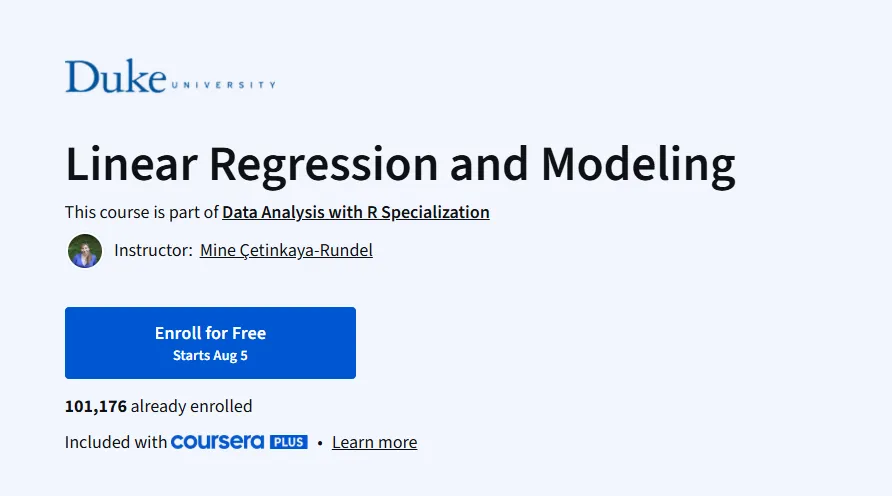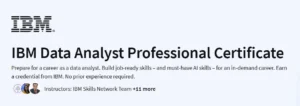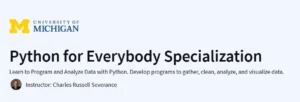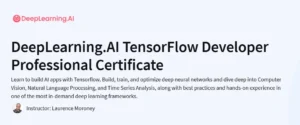What will you learn in Linear Regression and Modeling Course
Understand the fundamentals of linear regression and its assumptions
Use regression models to analyze relationships between variables
Interpret regression coefficients and determine model validity
Apply regression analysis in real-world business scenarios
Use Excel to build and evaluate regression models
Program Overview
Module 1: Introduction to Linear Regression
⏳ 1 week
Topics: Dependent vs. independent variables, scatterplots, correlation
Hands-on: Building your first regression model in Excel
Module 2: Estimating the Regression Line
⏳ 1 week
Topics: Ordinary Least Squares (OLS), residuals, best-fit line
Hands-on: Calculating regression line by hand and Excel practice
Module 3: Evaluating the Model
⏳ 1 week
Topics: R², adjusted R², hypothesis testing for regression coefficients
Hands-on: Model interpretation and evaluating model strength
Module 4: Model Assumptions and Diagnostics
⏳ 1 week
Topics: Linearity, independence, homoscedasticity, normality
Hands-on: Residual analysis and model refinement
Module 5: Business Applications of Regression
⏳ 1 week
Topics: Forecasting, marketing analysis, pricing strategy
Hands-on: Real-world business case studies and regression modeling
Get certificate
Job Outlook
Linear regression is a core technique in data science, business analytics, and finance
In-demand for roles such as business analyst, data analyst, and financial modeler
Salary ranges for analysts with regression skills: $65,000–$110,000/year
Applicable in industries like retail, banking, marketing, and consulting
Specification: Linear Regression and Modeling Course
|
FAQs
- A basic understanding of averages, percentages, and simple probability is enough.
- Advanced math or calculus isn’t required.
- The course explains statistical terms in simple language.
- Excel demonstrations make concepts easy to follow.
- Prior exposure to basic statistics helps but isn’t mandatory.
- The course is Excel-based, no coding needed.
- You’ll build regression models with formulas and tools.
- Hands-on practice is focused on spreadsheets.
- Concepts prepare you for coding later if desired.
- It’s suitable for business professionals who aren’t programmers.
- Regression is a common topic in analyst interviews.
- You’ll learn to explain R², coefficients, and model fit clearly.
- Knowledge of assumptions shows analytical depth.
- Business case studies help you link theory to practice.
- Strengthens both technical and communication skills for interviews.
- Each module takes around 3–5 hours.
- Includes video lessons, hands-on Excel practice, and quizzes.
- With steady pace, course can be done in 4–5 weeks.
- Learners can accelerate with more time investment.
- Flexible schedule makes it easy to fit alongside work.
- You’ll explore regression in sales, pricing, and marketing contexts.
- Forecasting future trends is covered using regression models.
- Emphasis is on interpreting business meaning of results.
- Helps in creating data-driven strategies for decision-making.
- Builds confidence to apply regression in real workplace scenarios.





